faculty
Profiles of CCT & SICW Teachers and Advisors
Faculty profiles, contact info, office hours, and links to syllabi.
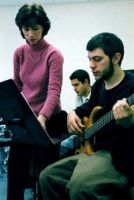
Suzanne Clark
Suzanne Clark is an Associate Professor, Berklee College of Music who has performed with Corey Eisenberg, Mickey Julian, Suzanna Sifter, Klaus Suonsaari, and Frank Texiera. Her recordings include "All the Nights Magic" with Pat Drain, and "Nordic Voices" and "Red Wine and Strawberries" with Stambandet, conducted by Allen LeVines. From her Berklee faculty bio:"I'm teaching a course called the Creative Flame. I developed it because I felt a class like this would have been helpful for me as an undergraduate-to learn what it means to be a creative artist and how to work at a creative process. These issues go hand in hand with technical skill. There are external components to your craft and there are internal components. You need a mixture of both, in my opinion, not just to be successful, but to sustain that success."
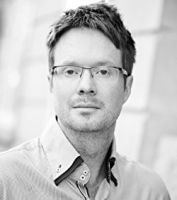
Olen Gunnlaugson, PhD, is an Associate Professor in Leadership and Organizational Development, in the Faculty of Business Administration, Department of Management at Université Laval, Québec City, Québec, Canada. His areas of specialization, research, and teaching include the following: Dynamic Presencing and Theory U; 21st Century Leadership Training and Capacity Development; Collective, Complexity and Consciousness-Based Leadership; Development of Management Skills; Communication & Presencing Processes; and Executive & Leadership Coaching.
He is author of upcoming book Dynamic Presencing: A Journey into Presencing Leadership, Mastery and Flow, set to be published in 2018 by Trifoss Business Press: Vancouver.
CV
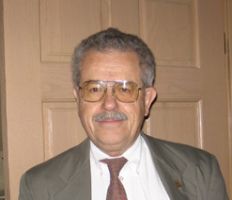
David S. Martin, Ph.D. is Professor/Dean Emeritus from Gallaudet University in Washington, D.C. He is an experienced teacher, school administrator, curriculum administrator, university administrator, and professor of education. He has taught several graduate courses for graduate programs at the University of Massachusetts at Boston, including Critical Thinking, Metacognition, Curriculum, Educational Evaluation, and the Supervision of Student Teaching. He resides on Cape Cod, MA.
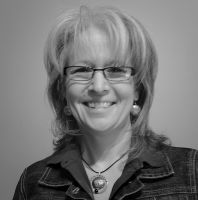
Rhoda Maurer became Director of Horticulture at Cornell Botanic Gardens of Cornell University in February of 2015. Prior to this appointment, she managed the grounds and research greenhouses of Cornell University’s NY State Agricultural Experiment Station in Geneva, NY. She previously served as the Assistant Curator at the Scott Arboretum of Swarthmore College in Pennsylvania, and has held other positions at The Elisabeth C. Miller Botanical Garden in Washington and the Royal Horticulture Society’s Garden at Wisley in the United Kingdom. Maurer holds degrees in Anthropology from the University of Washington, Horticulture from Edmonds Community College, and a Masters of Arts in Science in a Changing World from the University of Massachusetts at Boston. Maurer’s main responsibilities at Cornell include directing the horticulture program at Cornell Botanic Gardens, curating more than 40,000 plants representing over 5,000 different taxa across 450 acres of arboretum and botanic gardens, setting a vision for the program with an eye towards conservation and sustainability, and the management of horticulture staff including curators, gardeners, IPM practitioners, landscape architects, arborists, greenhouse staff and seasonal garden staff. With a mission to inspire people – through cultivation, conservation, and education – to understand, appreciate, and nurture plants and the cultures they sustain, the collections are the foundation of a world in which the interdependence of biological and cultural diversity is respected, sustained, and celebrated.
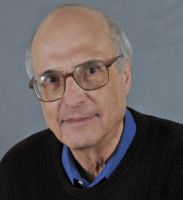
Arthur Millman (Associate Professor of Philosophy) teaches in the Philosophy Department as well as in the CCT Program. For CCT, he regularly teaches "Critical Thinking" (CCT 601) as well as "Foundations of Philosophical Thought" (CCT 603/Phil 501). He is in the process of developing a new course that explores recent developments and controversies and relates critical and creative thinking to applied and professional ethics. Arthur's research is in both the philosophy of science and applied ethics, and he has worked to help students with the integration and application of critical and creative thinking in a wide range of areas including elementary and secondary education and business.
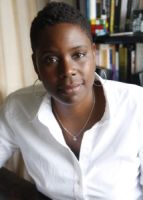
Micia Mosely, Ph.D. is a comedian and educator who performs her brand of social justice stand up and facilitates educational equity workshops across the country. She began her career teaching high school social studies in San Francisco and went on to work as a coach with The National Equity Project and a National Training Specialist with The Posse Foundation. Mosely's research and practice focuses on equity, race, and urban education. She is also known for her one-woman show “Where My Girls At?” a comedy about Black Lesbians. She stays connected to teaching as lecturer at UMass Boston and an Induction Mentor for the residency program a Teachers College, Columbia University. Mosely spends the majority of her time as the Executive Director of The Black Teacher Project, an organization committed to recruiting, developing and sustaining Black teachers for schools in the United States. Learn more at www.miciamosely.com & www.blackteacherproject.org
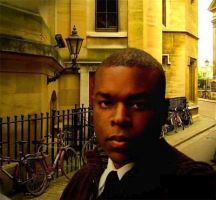
Mark Robinson is a visiting scholar at the Science Technology and Society Center at University of California, Berkeley and is completing doctoral research in anthropology at Princeton University. His general interests include medical anthropology, bioethics, the social study of science (STS). His research explores issues in pychopharmaceuticalization, contemporary biomedicine and neuroethics. His specific research questions focus on emerging innovations in neuroscience and biomedicine (especially relating to pharmaceuticals and technologies) and the attendant, emerging ethical implications. His additional research interests pertain to theories of human morality generally, the role of the social sciences in ethics, and the problem of language in the biosciences. Under a fellowship from Princeton''s Center for the Study of Religion, Mark conducted research regarding metaphor-use in neuroscience research. Mark is active with Princeton's Program in American Studies and is a member of the Technology and Ethics Working Group at Yale University's Interdisciplinary Center on Ethics. His work has received acknowledgments from the Institute for Humane Studies, The Committee on Institutional Cooperation, the National Science Foundation, the National Academies of Science and Princeton's Institute for International and Regional Studies.
Mark also brings clinical and professional experience including work with the Black Coalition on AIDS, the Centers for Disease Control and Prevention, the Public Health Foundation Enterprise, the San Francisco Department of Public Health, The Heartland Alliance for Health and Human Rights, the HIV Center for Clinical Behavioral Studies at Columbia University, the Department of Behavioral and Social Science at the University of California, San Francisco, Northwestern University's Weinberg School of Medicine. Mark's publications address topics spanning neuroscience, the history of antipsychotics and new developments in stem-cell research, genetics and prosthetics. Mark is a member of the Society for Medical Anthropology, the New York Academy of Science and the American Society for Bioethics and Humanities.
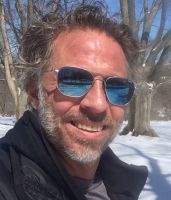
Ben Schwendener is a composer and pianist who sustains a unique voice in contemporary creative music and is a leading authority on George Russell’s Lydian Chromatic Concept of Tonal Organization, which he assisted Russell in teaching at the New England Conservatory from 1986 to 2004. After Russell’s retirement, he has continued to teach the LCC at NEC to this day. He was (from 1986 on) an editorial assistant to the late George Russell, and is a certified teacher (and while Russell was alive, of teachers) of the Lydian Chromatic Concept, and has given lectures, workshops and seminars at Universities around the USA and at institutions around the world. Schwendener has helped to establish a new direction in natural pedagogy and dialogue-based arts education, establishing Organic Music Theory and Universal Musical Elements as primary creative sources.
A father to three children and living in Boston with his wife Shari Repasz, Schwendener is on the faculty at the New England Conservatory and the Longy School of Music of Bard College. He has also designed classes for non-musicians, based on the inter-discipline correspondences of Organic Music Theory, which he has taught since 2000 for the Creative and Critical Thinking Department in the Graduate College of Education at UMass Boston.
He has created music for small and large ensembles, dance companies, film, video and art installations, written volumes of piano music for children of all ages, released many recordings and performs frequently with ensembles and on solo piano throughout the U.S., Europe and Japan.
Schwendener founded and directs Gravity Arts, Inc., a nonprofit organization providing customized educational services and products for individuals, groups and corporations. Most recent projects are collaborations with Swiss choreographer Angelo Dello Iacono since 2012. The Mobile Trio and Iacono’s dance companyADN Dialect have created the international cultural exchange project No Plan B, an experimental jazz scenic event and most recently Zeitzone.
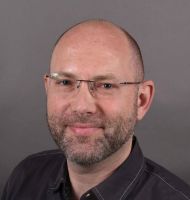
Jeremy Szteiter (
 ) is a graduate of Carnegie Mellon University (Cognitive Science) and University of Massachusetts Boston (Critical and Creative Thinking) and now serves as the Assistant Director of the graduate program in Critical and Creative Thinking at UMass Boston. His work has centered on program and organizational development, particularly in adult education in community-based human services and has involved managing, developing, and teaching programs to lifelong learners, with an emphasis on a learning process that involves the teaching of others what has been learned and supporting the growth of individuals to become nonformal teachers of what they know. Jeremy's work draws upon principles and practices of social change pedagogy, technology-enhanced collaboration, instructional design, and participatory theater.
) is a graduate of Carnegie Mellon University (Cognitive Science) and University of Massachusetts Boston (Critical and Creative Thinking) and now serves as the Assistant Director of the graduate program in Critical and Creative Thinking at UMass Boston. His work has centered on program and organizational development, particularly in adult education in community-based human services and has involved managing, developing, and teaching programs to lifelong learners, with an emphasis on a learning process that involves the teaching of others what has been learned and supporting the growth of individuals to become nonformal teachers of what they know. Jeremy's work draws upon principles and practices of social change pedagogy, technology-enhanced collaboration, instructional design, and participatory theater.contact: Jeremy.Szteiter at umb.edu
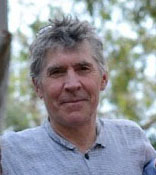
Peter Taylor (Professor of Science in a Changing World/Critical & Creative Thinking) I joined the Critical and Creative Thinking (CCT) Program at UMass Boston in 1998 and continue to enjoy new challenges teaching experienced educators and other mid-career professionals. Working in the CCT Program also provides opportunities to promote reflective practice in ways that extend my contributions to science—in ecology and environmental studies (ES) and population health (PH)—and in social studies of science and technology (STS). In science and in STS I focus on the complexity of the situations studied and the social situations in which the scientific research is undertaken. Both kinds of situation, I argue, can be characterized in terms of "intersecting processes" that cut across scales, involve heterogeneous components, and develop over time. These cannot be understood from an outside view; instead positions of engagement must be taken within the complexity. Knowledge production needs to be linked with planning for action and action itself in an ongoing process so that knowledge, plans, and action can be continually reassessed in response to developments -- predicted and surprising alike. In this spirit, ES/PH, STS, and critical pedagogy/reflective practice have come together for me in a project of stimulating researchers to self-consciously examine the complexity of their social situatedness so as to change the ways they address the complexity of ecological and socio-environmental situations. (See my book Unruly Complexity: Ecology, Interpretation, Engagement, U. Chicago Press, 2005, and Intersecting Processes blog.) Through collaborations in and beyond CCT I also seek to promote a vision of critical science education that extends from improving the teaching of scientific concepts and methods to involving citizens in community-based research.
This project had its beginnings in environmental and social activism in Australia which led to studies and research in ecology and agriculture. I moved to the United States to undertake doctoral studies in ecology (Harvard 1985), with a minor focus in STS. Subsequently I combined scientific investigations with interpretive inquiries from the different disciplines that make up STS (working, among other places, at U. C. Berkeley and Cornell), my goal being to make STS perspectives relevant to life and environmental students and scientists. (This is evident in my contributions to a book I co-edited, Changing Life: Genomes, Ecologies, Bodies, Commodities, U. Minnesota Press, 1997.) Over the last two decades I have also been studying social epidemiological approaches that address the life course development of health and behavior. Critical thinking and critical pedagogy became central to my intellectual and professional project as I encouraged students and researchers to contrast the paths taken in science, society, education with other paths that might be taken, and to foster their acting upon the insights gained. (In 2009, I received the Chancellor's Award for Distinguished teaching.) Bringing critical analysis of science to bear on the practice and applications of science has not been well developed or supported institutionally, and so I continue to contribute actively, to new collaborations, programs, and other activities, new directions for existing programs, and collegial interactions across disciplines.
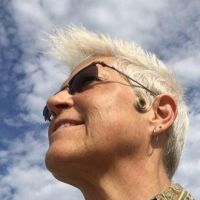
Luanne Witkowski is an American artist working in a wide range of media and reflective and social practice, with works in collections throughout the United States and abroad. She is a member of the Kingston Gallery, Boston, MA; represented by Hutson Gallery and AMP Gallery both in Provincetown, MA. She exhibits regularly and produces environmental and site-specific installations. Luanne is a member of several artist organizations including the United South End Artists, Mission Hill Artist Collective, and the Provincetown Art Association and Museum. More examples of her work can be seen in Contemporary Cape Cod Artists on Abstraction, (D.Forman, 2015, Schiffer Publishers) and on her website www.lewstudio.com. Her Basic Training for Artists and Creative People Workshops (Healthy Artist/Healthy Studio) are offered in collaboration with public and private institutions and individual consultation. In addition to her studio practice, she is the Communication Design Studio manager, adjunct faculty, and LR-MFA Mentor at Massachusetts College of Art and Design; she teaches Creative Thinking in the Critical & Creative Thinking (CCT) graduate program at the University of Massachusetts, Boston, and is an internet entrepreneur and business owner. Honors include: Commonwealth of Massachusetts Lifetime Achievement in Art & Commerce Commendation; Massachusetts Statehouse Solo Exhibition; CAPS Faculty Award: Personal and Professional Development University of Massachusetts/Boston Visit: http://www.lewstudio.com